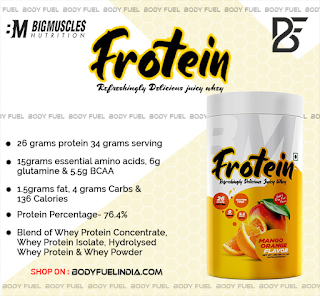Multivitamin (also called multi-minerals or mult is) are a compilation of different vitamins that are normally consumed from the diet and other natural sources. They are used to ful fil daily need of essential vitamins and minerals which are inaccessible for some people to consume from their diet. Multivitamins are also used to treat vitamin deficiencies, certain medical treatments and can also prevent chronic diseases.
As there’s no specific guideline for multivitamins, their nutrient composition varies by brand and product, it can also contain antioxidants and minerals like iron, calcium etc. It helps in fulfilling the micro nutrients gaps on a restrictive and weight loss diets.
What are the benefits of Multivitamins? How does Multivitamin help?
There are many ways by which the body can get affected due to deficiency of even one vitamin. To keep the balance of all vitamins, multivitamins act as an accountant to fulfil the need for micronutrients for the body.
It helps in reducing stress, the body uses vitamin B to produce energy from food which makes the nervous system to function properly, this also reduces anxiety.
It can help in improving the eye health of an individual if they are lacking vitamin C and E, multivitamins can also be useful in enhancing the short memory of people.
Signs of a vitamin deficiency
How do you find out that you have a vitamin deficiency?
Have little energy, feel tired for no reason, look pale and get sick quickly; all of these can be signs of nutritional deficiency.
A list of the most common symptoms of vitamin and mineral deficiency:
1: Bleeding gums- Vitamin C plays an important role in wound healing, immunity and also acts as an antioxidant, which prevents cell damage. The body does not make vitamin C by itself, which means we need to eat enough fruits and vegetables to get enough vitamin C. People who eat fewer vegetables and fruits can, therefore, suffer from a vitamin C deficiency.
2: Hair loss and brittle nails- Hair loss and brittle fingernails and toenails can have different causes. One of them is a lack of vitamin B7 (biotin). Biotin helps the body convert food into energy. A lack of biotin leads to brittle hair and brittle nails.
3: Blisters and sores in the mouth- Blisters and sores in the mouth can also be the result of a vitamin or mineral deficiency.
4: Eye discomfort and night blindness- Poor nutrition can also lead to vision problems. A lack of vitamin A has been linked to a condition known as night blindness. If no vitamin A deficiency is found, most people should avoid vitamin A supplements. Vitamin A is a fat-soluble vitamin that is stored by the body in adipose tissue, where excessive absorption can accumulate and have a toxic effect.
5: Flaky skin and dandruff – Dandruff and seborrheic dermatitis can be triggered by several factors, including poor nutrition. Low zinc, vitamin B2, vitamin B3 and vitamin B6 values can play a role here.
6: Restless legs syndrome (RLS) – The restless legs syndrome is a nerve disorder that leads to an unpleasant sensation in the legs. You then have an irresistible urge to move your legs. Taking iron supplements often helps to reduce RLS symptoms, especially in those who have also been diagnosed with iron deficiency. However, the effectiveness of this measure can vary greatly depending on the person.





























